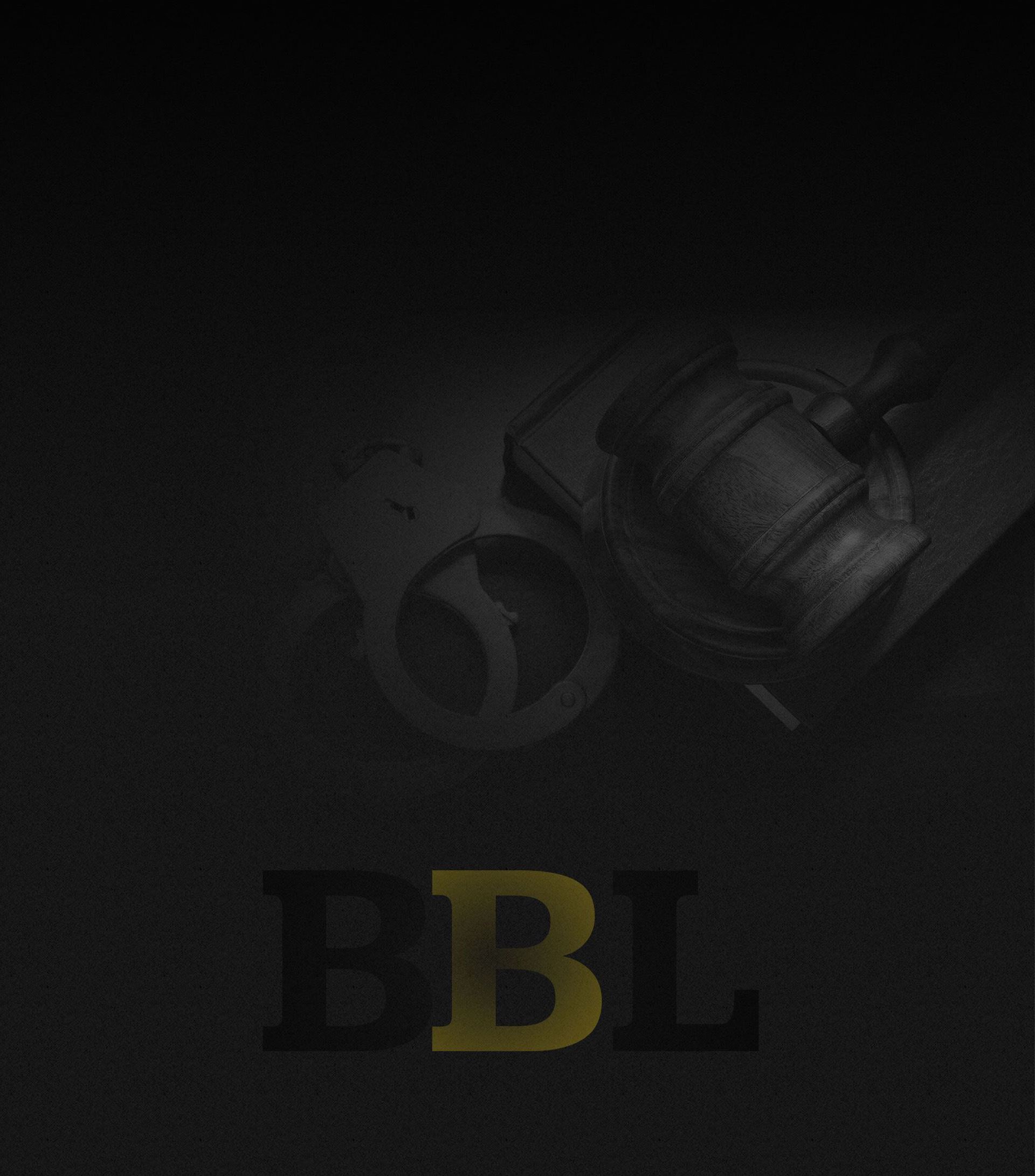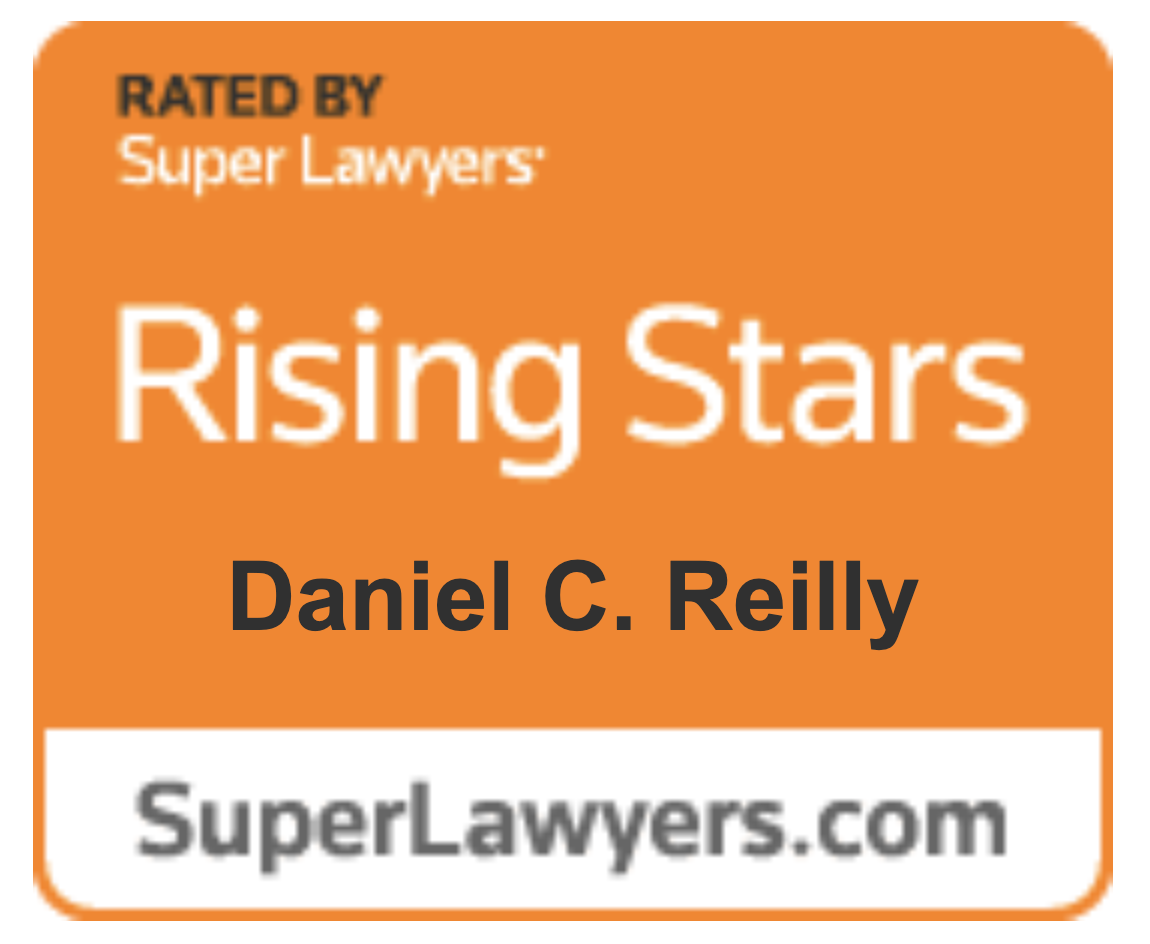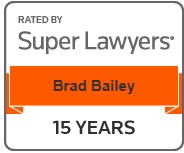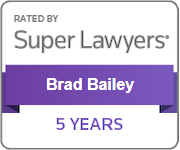
Boston's Go-To Criminal Defense Law Firm
Boston Assault & Battery Lawyer
Experienced Assault Defense Attorneys Serving Suffolk County, MA
Assault and battery is considered a serious crime, both by the state of Massachusetts and elsewhere in the United States. To prove assault and battery beyond a reasonable doubt, the prosecution must show that the defendant committed an unwanted touching, intended to engage in the touching, that the touching was harmful or offensive, and that it was committed without justification or excuse.
Because every assault and battery case is unique, an in-depth understanding of local law and Boston court procedures is essential. The Massachusetts General Laws, particularly Chapter 265, define the various forms of assault and battery and outline the elements that the Suffolk County District Attorney's office must prove in court. The judicial process for such charges often takes place at the Boston Municipal Court or Suffolk Superior Court, each with unique procedures and protocols that can impact your case. Having an experienced assault attorney who is familiar with both venues can be a significant advantage in developing a strong defense strategy that addresses local nuances specific to Boston prosecutions and sentencing.
Understanding Massachusetts Assault & Battery Laws
Massachusetts law makes an important distinction between assault, battery, and aggravated forms of each offense. Under M.G.L. Chapter 265, Section 13A, "assault" is defined as either an attempt to use physical force against another person or a demonstration of intent to use immediate force that puts someone in fear. "Battery" involves the actual harmful or offensive physical contact. Aggravated assault or aggravated battery includes factors such as the use of a dangerous weapon, causing serious bodily injury, or targeting protected classes such as public employees or vulnerable individuals. The local courts in Boston—including the Boston Municipal Court and Suffolk Superior Court—are accustomed to handling cases with these distinctions, and the approach taken by the District Attorney’s office can vary based on the circumstances and local community concerns. For anyone facing such charges in the Boston area, understanding these laws and how a battery attorney Boston or assault lawyer Boston navigates them is crucial. Even minor facts can mean the difference between a misdemeanor and a felony, impacting sentencing and long-term consequences throughout Boston and Massachusetts.
When you hire Brad Bailey Law, you benefit from defense strategies grounded in a detailed analysis of relevant statutes and an extensive understanding of outcomes in Suffolk County courts. Our assault lawyers and battery attorneys in Boston ensure that clients are guided step-by-step through the differences between assault, battery, and aggravated charges. Our in-depth local experience allows us to anticipate prosecutorial tactics, leverage motions to dismiss, and deploy every viable defense under Boston and state law. Whether the charge involves intent, the degree of injury, or the presence of aggravating circumstances, our comprehensive knowledge of local statutes and courtroom practice gives clients a valuable advantage from start to finish.
The penalty in Massachusetts for a conviction of assault and battery is a jail term of up to 2 ½ years in a House of Correction and/or imposition of a monetary fine.
Sentences can be increased and include state prison for the use of a dangerous weapon in connection with an assault and battery (ABDW). Penalties may also be enhanced by circumstances such as the severity of the offense or specific characteristics of the victim, such as age (assault and battery on a person over 65) or disability (assault and battery on a mentally handicapped individual).
Facing accusations? Schedule your free consultation with our Boston assault lawyer online or call (617) 500-0252 today!
What is Aggravated Battery?
Aggravated battery (a felony) in Massachusetts is defined by several factors:
- The nature, seriousness, and/or permanency of the injury caused
- Indecent assault and battery
- A felony that also allows for imposition of a state prison sentence and is subject to sex offender registration
- Non-consensual sexual battery (touching), with offenses divided by age (under 14; over 14)
Aggravated battery charges in Massachusetts generally arise when the alleged conduct results in significant harm to the victim and can lead to much harsher criminal penalties upon conviction. Boston-area courts take these allegations seriously, with local prosecutors typically pursuing aggressive prosecution strategies. It's not uncommon for aggravated battery charges to coincide with additional offenses such as assault with a dangerous weapon, especially if incidents happen in public settings or involve multiple individuals. An experienced battery attorney in Boston must thoroughly examine medical records, police reports, and witness statements to challenge the prosecution’s claims about the extent of injury or intent. Local knowledge about trends in Suffolk County court decisions can also help identify opportunities for a favorable outcome or reduction in charges.
In cases of domestic assault and battery, the prosecution must establish that there was a live-in or domestic relationship. These cases frequently result in the imposition of strict abuse prevention or restraining orders. Violating such orders can lead to additional criminal charges and possible jail time, often enforced quickly by Boston-area law enforcement agencies and courts.
What is Aggravated Assault?
In Massachusetts, assault is a criminal offense with varying degrees of severity. When certain aggravating factors are present, an assault can be charged as aggravated assault, which carries much harsher penalties compared to simple assault. Common factors that elevate a case to aggravated assault include:
- Use of Deadly Weapons: If a person uses a deadly weapon or any object likely to cause severe harm or death during the commission of an assault, it may be considered aggravated assault. Weapons may range from firearms and knives to blunt objects like baseball bats.
- Serious Bodily Injury: When the alleged victim suffers significant injuries requiring medical treatment or resulting in long-term impairment, the case may be classified as aggravated assault. The injury's seriousness is always a key consideration.
- Victim Characteristics: Assaults against individuals in protected roles—such as law enforcement officers, healthcare workers, or public servants while performing official duties—can result in an upgraded charge due to the victim's role.
- Specific Intent: If the accused’s actions show malicious intent or a wanton disregard for human life, the assault charge may be upgraded. This includes premeditated attacks or cases with clear evidence of intent to cause severe harm.
In Boston, law enforcement agencies treat aggravated assault charges as high-priority cases, particularly because they often involve heightened risks to public safety. Aggravating factors may trigger in-depth investigations by the Boston Police Department or Massachusetts State Police. An experienced Boston assault attorney or aggravated assault defense attorney in Boston can challenge whether the alleged weapon qualifies as "deadly," dispute the degree of injury, or demonstrate the absence of aggravating circumstances. Under Massachusetts law, objects not typically classified as weapons may be considered deadly if used in a manner likely to inflict serious injury. Effective defense by a skilled aggravated assault defense attorney in Boston involves careful review of police investigations, witness accounts, and forensic evidence, along with a local understanding of how Suffolk County courts typically approach these cases and sentencing enhancements.
What to Expect in Boston, MA Courts
When you are charged with assault, battery, or aggravated assault in Boston, your initial court appearance will likely occur at Boston Municipal Court or Suffolk Superior Court, depending on the nature and severity of the allegations. Each phase of the criminal justice process—including arraignments, pre-trial conferences, motions, and trial proceedings—is governed by established protocols unique to Boston's courts. Local prosecutors are thorough in their review of evidence, and may seek pre-trial detention for more serious offenses. Retaining an assault attorney in Boston familiar with these courts is invaluable; your legal representative can help you understand your rights at every stage, what to expect at each hearing, and how best to prepare for your case as it moves through the Boston judicial system.
At Brad Bailey Law, our defense team leverages extensive experience within Boston courtrooms to build strategic, proactive defenses from the outset of your case. We help clients navigate the complex landscape of local rules, whether applying for bail, making pre-trial motions, or negotiating with prosecutors. Because each judge and courtroom in Boston may follow different routines and preferences, we provide customized guidance based on our established knowledge of the Boston legal community. This approach often proves critical for establishing credibility and securing the best possible outcome at every phase of your case in Suffolk County.
What are the Penalties for Assault & Battery in Massachusetts?
In Massachusetts, the penalties for assault and battery include up to 2 years in jail and a $1,000 fine. However, several circumstances can result in even harsher penalties:
- Assault and battery on a family or household member
- Assault and battery on a public employee
- Assault and battery causing serious bodily injury
- Assault and battery on a pregnant woman
- Assault and battery on a child under 14
- Assault and battery on an elderly or disabled person
Besides statutory penalties, those convicted may also face restrictive probation conditions, mandatory counseling, and loss of civil rights, such as firearm ownership—especially given Boston’s stringent local regulations. Judges in Boston have significant discretion to impose additional consequences based on the unique facts of a case, including the defendant’s prior record and risk to the community. For professionals in Boston—such as educators, healthcare workers, or anyone whose job requires a criminal background check—an assault or battery conviction can severely affect employment. Understanding how these penalties are typically enforced in Suffolk County courts and the full range of collateral consequences is one reason why working with a locally experienced assault lawyer Boston or battery attorney Boston is absolutely critical.
Reckless Conduct in Assault & Battery Cases
Assault and battery can also be prosecuted as the result of reckless conduct. In such cases, the prosecution must prove beyond a reasonable doubt two elements: that the defendant’s actions caused physical or bodily injury to the alleged victim, and that those actions amounted to wanton and reckless conduct.
Reckless conduct charges frequently stem from situations where there was no intention to harm but someone was nonetheless injured—such as during a chaotic argument, a physical confrontation at a Boston venue, or an incident involving alcohol in a local bar or club. Prosecutors must show that the behavior amounted to more than mere negligence and that a reasonable person would recognize it posed a significant risk. Effective defense from a battery lawyer in Boston or assault attorney Boston relies on a comprehensive review of the circumstances, interviews with witnesses, and careful forensic analysis. The difference between reckless actions and unfortunate accidents is often a crucial issue in Suffolk County courts, highlighting the importance of working with a defense attorney highly familiar with the Boston legal landscape.
Assault in Massachusetts is essentially an incomplete assault and battery or a threat of battery. It may also be charged as a felony if a dangerous or deadly weapon is involved (A/DW) and penalties can be enhanced depending on the specifics of the case or the victim’s characteristics.
Assault and battery on a public employee (commonly charged for batteries on police or fire personnel) requires proof beyond a reasonable doubt that it was committed while the victim was performing official duties and carries a mandatory minimum 90-day jail sentence upon conviction in Massachusetts courts.
If you are facing any of these charges, it is essential to understand your rights and seek immediate representation. Working with an assault lawyer in Boston with years of experience handling a wide variety of assault and battery allegations is the best way to ensure you are prepared for the full legal process, whether you face charges as a misdemeanor or felony in Suffolk County.
Intentional Assault & Battery
To obtain a conviction for intentional assault and battery, the Commonwealth must convince a jury beyond a reasonable doubt of all of the following:
- The defendant engaged in a touching, however slight, and the facts of the specific case support this finding.
- The defendant intended to commit the touching. A jury may infer intent by considering all the circumstances, evidence, and conduct of the defendant presented at trial.
- The touching was harmful or offensive. A harmful touching is physically or potentially physically harmful; an offensive touching violates an individual’s sense of personal dignity.
- The battery was committed without justification or excuse. For example, a physical examination by a doctor is justified, while an otherwise offensive touching that occurs while saving someone from harm may be excusable. The Commonwealth must prove beyond a reasonable doubt that no justification or excuse exists.
- Defendant committed a touching
- Defendant intended to engage in the touching
- The touching was harmful or offensive
- Action was taken without justification or excuse
Defending against intentional assault and battery charges often focuses on contesting the prosecution’s facts or asserting legal defenses such as self-defense, consent, or mistaken identity. In Boston, where security cameras and eyewitness accounts are widespread due to high-density neighborhoods and businesses, these types of evidence are frequently leveraged to build a robust defense. The context of the encounter and prior relationships between parties can be persuasive before a Suffolk County jury. Massachusetts law recognizes subtle differences in how intent is judged and every detail of the incident—from its location in Boston to the sequence of actions—can impact the case’s resolution. Engaging an experienced assault lawyer Boston who understands the local courts can be decisive in asserting these defenses effectively.
Reckless Assault & Battery
A person can also be convicted of assault and battery based on reckless actions that lead to injury instead of intentional conduct. In order to prove assault and battery by reckless conduct, the Commonwealth must demonstrate two facts beyond a reasonable doubt:
- Commonwealth v. Ma, indecent assault and battery case
- Commonwealth v. Hallum, indecent assault and battery case
- Commonwealth v. Turner, indecent assault and battery under 14 case
- Com v. B., aggravated domestic battery
- Com v. P.S, domestic battery
- Com v. J. L., assault and battery on a public employee, A/DW
- Com v D.S., AB/DW
- Com v. A.S. , domestic battery
- Com v. D.S., domestic battery
- Com v. M., domestic assault
- Com v. J.A., assault and battery
- Com v. T.M., assault and battery
Actions That Caused Physical or Bodily Injury to the Victim
The first element the prosecution must prove beyond a reasonable doubt is that the defendant’s actions resulted in physical or bodily injury to the alleged victim, interfering with the victim’s health or comfort.
Analysis of these cases generally requires careful review of medical records and expert testimony. In Boston, medical documentation from facilities like Massachusetts General Hospital or Boston Medical Center frequently becomes key evidence. The injury in reckless assault and battery cases doesn’t need to be permanent but must rise above being merely minor or temporary. Prosecutors may seek to exaggerate the seriousness of such injuries to push for elevated charges, making in-depth case investigation by a qualified battery attorney in Boston an essential step for the defense in Suffolk County cases.
The injury does not need to be permanent; it must be more than transient or trifling. For example, an act that simply startles someone without causing lasting discomfort would be considered transient and trifling.
Actions Amounting to Wanton & Reckless Conduct
The second element the Commonwealth must prove is that a defendant’s actions were wanton and reckless. It is insufficient for the prosecution to show only negligence—actions that a reasonably careful person would avoid.
Successfully defending against claims of wanton and reckless conduct in Boston often requires examination of unique contributing circumstances, such as confusion at crowded events, misunderstandings in public spaces, or provocation. Boston’s bustling night life, sporting events, and urban gathering spots can provide context that distinguishes mere negligence from criminal recklessness. Experienced assault and battery attorneys in Boston often investigate security protocols, crowd management, and whether intoxicants were involved. Jurors in Suffolk County may have different perspectives on these factors, so an attorney's knowledge of local expectations can strongly influence the case outcome.
To meet the legal threshold, the prosecution must show that a defendant’s actions went beyond negligence and constituted recklessness. The law treats defendants as acting recklessly if they knew, or reasonably should have known, that their conduct would likely cause substantial harm, yet proceeded regardless of the risk involved.
Is Assault a Felony?
In Massachusetts, assault can be classified as either a felony or a misdemeanor depending on the facts and severity of the offense. Generally, simple assault—intentional infliction of minor physical harm or threatening harm without actual physical contact—is a misdemeanor. However, factors such as serious injury, presence of a deadly weapon, or aggravating circumstances can raise the charge to felony assault.
For example, simple assault is often charged as a misdemeanor involving a threat of violence or minor physical contact that does not result in major injury. If the assault leads to severe injuries, includes the use of a weapon, or targets a protected class, felony charges are likely. These distinctions are strictly enforced in Boston and across Massachusetts.
Aggravated assault, typically involving the use of a weapon or the intent to inflict serious bodily harm, is a felony offense. This classification carries significantly higher penalties and life-altering consequences, particularly for defendants convicted in Suffolk County.
Because the specific elements and penalties for assault offenses differ across jurisdictions, it is vital to consult with an assault attorney Boston or aggravated assault defense attorney Boston who understands local statutes if you are facing charges.
Defending Against Assault Charges in Boston
Facing assault charges can have severe consequences, including significant fines, incarceration, and a permanent criminal record. Securing the services of a knowledgeable assault attorney in Boston is critical to defending your rights and pursuing the most favorable resolution possible.
Massachusetts courts, and especially those in Greater Boston, are proactive in prosecuting violent crimes. If you’re arrested or charged, your defense should start as soon as possible. At Brad Bailey Law, we use detailed insight into Suffolk County prosecutors’ tactics and the negotiation habits of local district and superior court judges to position your case for success. We analyze Boston police reports, evidence, and witness accounts to anticipate prosecutorial arguments and respond proactively. Early intervention is key—whether making arguments for reduced bail, negotiating favorable release conditions, or pursuing pre-trial diversion programs. Our criminal defense approach is tailored to minimize collateral consequences such as restraining orders, loss of employment, or immigration issues, all particularly relevant in Boston’s dynamic professional climate.
At Brad Bailey Law, our attorneys have over 37 years of experience handling assault, battery, and aggravated assault defense cases in Massachusetts courts. We are fully versed in the intricacies of local and state laws, and we work tirelessly to deliver strong, individually tailored defense strategies for each client.
Here are some ways our assault defense attorneys in Boston can help with your assault case:
- Investigating the details of the alleged assault or battery
- Gathering critical evidence to support your defense against assault charges
- Negotiating with Boston-area prosecutors for reduced charges or alternative resolutions
- Representing you in court and vigorously defending your rights
Don’t face assault, aggravated assault, or battery charges alone. Put the knowledge and commitment of our Boston assault lawyers to work for you and give yourself the best possible chance at a positive outcome. Contact Brad Bailey Law today to schedule an initial consultation.
Understanding the Impact of Assault Charges on Your Future
Assault charges can substantially affect nearly every aspect of your life, including employment, education, licensing, and personal relationships. The long-term implications of a conviction may include a permanent criminal record, obstacles to securing housing, bars to certain professional licenses, and ongoing stigma in the Boston community.
In Boston, a criminal conviction can restrict future opportunities in industries such as higher education, healthcare, finance, technology, and government employment—all sectors known to require background checks. Many employers, landlords, and Boston-area colleges ask about prior criminal history, so even a misdemeanor conviction can have lasting consequences. Licensing boards in Massachusetts are often rigorous in their reviews, particularly for teachers, nurses, attorneys, and financial professionals. Understanding the immediate and future risks of these charges is a crucial reason to retain a skilled assault lawyer who provides both clear guidance and vigorous advocacy in the Boston area.
At Brad Bailey Law, we believe that knowledge is power. Educating our clients about both the direct and indirect repercussions of assault charges enables them to make informed decisions about legal strategies. Here are some key considerations to keep in mind:
- Employment Risks: Most employers perform criminal background checks, and a conviction can make it much harder to get a job.
- Educational Barriers: Some colleges and professional schools may refuse admission or financial aid to applicants with criminal records.
- Social Stigma: Convictions often result in social isolation or loss of trust, which can impact personal and community relationships.
- Legal Limitations: Depending on the type of conviction, you could face restrictions on firearm ownership or international travel, among other legal consequences.
By working with our experienced Boston legal team, you can navigate these challenges strategically. We will not only defend your rights in court but also prepare you for potential secondary effects, ensuring you can make well-informed decisions about every step in your legal journey. Don’t leave your future to chance—contact Brad Bailey Law for a comprehensive case review and strategic defense counsel.
How Our Experienced Boston Assault Defense Attorneys Can Help
Facing assault charges in Boston can be overwhelming—but every individual accused has rights. At Brad Bailey Law, we believe every client deserves proactive, individualized defense. Navigating the criminal justice system without an advocate is daunting; retaining a skilled Boston assault attorney provides critical protection of your interests from the start.
The criminal defense landscape in Boston is shaped by its distinct judges, prosecutors, and task forces—such as those dedicated to domestic violence or gang activity. Selecting an experienced Boston assault lawyer or aggravated assault defense lawyer in Boston well-acquainted with Boston’s court system, including Suffolk County Courthouse and the Boston Municipal Court, equips clients to address local strategies head-on. At Brad Bailey Law, we pay close attention to new trends in Boston prosecution and the expectations of local courts. We adjust our strategies based on successful outcomes in prior Boston cases and use this input to anticipate and counter unique challenges for our clients. This depth of Boston-focused experience maximizes your opportunity for positive results.
Working with our assault attorneys in Boston provides substantial benefits, including:
- Legal Guidance: Our Boston legal team has a thorough knowledge of Massachusetts criminal statutes and court procedures, empowering you to make informed decisions.
- Case Review: We conduct comprehensive assessments of your situation, identify strong defenses, and build a custom legal strategy for your assault or battery case.
- Negotiation: We are proven negotiators, advocating for charge reductions or advantageous plea deals when aligned with your best interests.
- Support: A legal crisis is stressful—our Boston assault attorneys prioritize communication and emotional support throughout the case.
- Protecting Your Future: Conviction can impact housing, jobs, and reputation. We focus on protecting your legal rights and mitigating long-term effects.
Don’t attempt to resolve assault allegations on your own. Contact Brad Bailey Law in Boston for a confidential consultation, and let an assault attorney or aggravated assault defense attorney Boston guide you every step of the way.
Put 37+ Years' Experience on Your Case
Brad Bailey, a Boston assault and battery lawyer, has represented clients on both sides of criminal proceedings. He has served as a felony prosecutor in Manhattan—prosecuting all types of felony assaults—a senior trial prosecutor in Middlesex County, and a County Sheriff overseeing inmate assault cases and dispute resolution programs. As a federal prosecutor in Boston, he gained unique insight into how criminal accusations are pursued by law enforcement and the courts.
With deep knowledge of Boston’s courts, judges, and law enforcement practices, Brad Bailey Law leverages decades of courtroom experience to provide a vigorous defense for residents facing assault, battery, or aggravated assault in Boston. Brad Bailey’s prosecution background at both state and federal levels means he understands exactly how Suffolk County charges are developed and prosecuted. He knows the nuances of Boston police investigations and the relationship between neighborhoods, law enforcement, and the justice system—factors that can shape outcomes in cases. This local knowledge, paired with national recognition, allows us to implement creative, dynamic strategies in every Boston case.
As a violent crimes lawyer, Brad Bailey has prosecuted and defended virtually every major form of assault, assault and battery, or domestic violence. He employs creative, outside-the-box thinking and zealous advocacy for every client, on every case, in every Suffolk County courtroom.
- Creativity
- Out-of-the box thinking
- Zealous advocacy
These qualities are delivered not only in the challenging cases he regularly handles but for every client defense. When you need a battery attorney Boston or an assault lawyer Boston who understands the full range of local and felony charges, Brad Bailey Law provides unparalleled insight and diligent representation.
The following notable cases are only a few of the hundreds Brad Bailey has recently defended (not including many Magistrate hearings in which he successfully kept assault-related charges from issuing): For comprehensive defense in any Boston assault or battery case, contact Brad Bailey today to schedule a consultation.
Learn your defense options from our experienced Boston assault & battery lawyers today when you contact Brad Bailey Law online or at (617) 500-0252.
Frequently Asked Questions
What Should I Do Immediately After Being Arrested for Assault & Battery in Boston?
If you have been arrested for assault and battery in Boston, it is crucial to stay calm and exercise your right to remain silent until you can speak with an assault attorney in Boston. Remember that anything you say to police can be used as evidence in your case. Avoid discussing your situation with anyone except your legal counsel. Contacting an assault defense lawyer in Boston as soon as possible—such as a trusted attorney at Brad Bailey Law—is the best way to protect your rights. Prompt legal representation can guide you through your first court appearance at Boston Municipal or Suffolk Superior Court, advise you about bail, and begin developing strategic defenses specific to Boston’s criminal justice process.
How Are Assault & Battery Charges Different from Aggravated Assault in Massachusetts?
In Massachusetts, basic assault and battery charges generally involve alleged minor harm or offensive touching without the use of a weapon. By contrast, aggravated assault or aggravated battery involves additional elements such as the use of a weapon, serious bodily injury, or an alleged victim in a protected category (e.g., police officer, senior citizen). As a result, aggravated assault defense attorneys Boston frequently see clients facing larger penalties, mandatory prison sentences, and more aggressive prosecution. Defending an aggravated assault charge in Boston demands comprehensive knowledge of how local courts handle weapon classifications, injury severity, and statutory enhancements. Working with a battery attorney Boston or aggravated assault lawyer Boston gives you a better chance of addressing the factors leading to more serious charges and pursuing dismissal or reduction wherever justified.
Can an Assault or Battery Charge Be Dismissed or Reduced in Suffolk County?
Yes, in many cases, assault and battery charges in Suffolk County, Massachusetts, may be dismissed or reduced depending on the circumstances. Key factors for the court include the credibility of the complainant, the existence of exculpatory or mitigating evidence, evidence of self-defense, and any inconsistencies in the account of events. Boston courts also frequently consider pre-trial diversion, continuance without a finding (CWOF), or plea agreements, especially for first-time defendants facing less severe allegations. Having a knowledgeable assault attorney Boston or battery lawyer Boston can make a significant difference—by analyzing police reports, negotiating directly with prosecutors, and leveraging established local relationships, your attorney may secure a reduction, alternative resolution, or even a full dismissal where justified by the law and facts.
Request a FREE case analysis now and schedule a confidential consultation today.

The Right Choice for Your Case
-
"We cannot recommend Brad Bailey more highly to anyone facing criminal charges in any court at any level."Anonymous
-
"Brad Bailey is one of the best attorneys I've had. He's easy to talk to and listens. Gives great advice and is ready to do work hard for a positive outcome."Krysten O'Donnell
-
"This is one smart and hard-working attorney. He is attentive and he was ready to fight any angle the prosecutors could come up with. His experience in the legal forum is significant and it shows."Canda Share
Free Consultation
See How Our Award-Winning Attorney Can Fight for YouNot Guilty Verdicts & Dismissals in Cases Across America
-
Murder 1, Jury Trial
Not Guilty
Not guilty verdict after jury trial for client charged with murder.
- Aggravated (Gang) Rape, Jury trial Not Guilty
- Aggravated Rape of Child, forcible Rape of Child, Indecent A & B (Jury Trial) Not Guilty
- Forcible Rape, Jury Trial Not Guilty
- Arson Occupied Dwelling, Bomb Incendiary Device Federal Jury Trial Not Guilty
-
Perjury, Obstructing Justice, Federal Jury Trial
Not Guilty
Not Guilty: Perjury & Obstruction – Federal Jury Trial Victory.
- Obstructing Official Proceeding, Destruction of Records (Public Official) Federal Jury Trial Not Guilty
- Forcible Rape of Child, Jury Trial Not Guilty
- Conspiracy to Commit International Money Laundering, Defraud the USA, and Health Care Fraud (Federal Jury Trial) Not Guilty Verdicts
- Murder 1 Motion for New Trial GRANTED (after hearing) Verdict Reversed
- Trafficking in Cocaine, Jury Trial Not Guilty
- Forcible Rape, REVERSED ON APPEAL Dismissed
- Racketeering (RICO), REVERSED ON APPEAL (1st Cir) Dismissed
- Aggravated Rape of Child, Rape of Child, Disseminating Harmful Material, Jury Trial Not Guilty Verdicts
- Murder 1 [Adjutant Defense] Manslaughter Result
- Murder 1 (Jury Trial) Hung Jury
- Conflict of interest/ False Pretense Fraud (Jury Trial) Hung Jury / Dismissed
- Aggravated Felonious Sexal Assault (NH), Motion for new trial GRANTED (after hearing) INDICTMENTS DISMISSED
- Aggravated Rape of Child, rape of Child, indecent A & B ( Teacher), Jury Trial MISTRIAL; HUNG JURY
-
Forcible Rape, (Jury Trial)
Not Guilty
Not guilty verdict after jury trial for client charged with rape.
- Murder 1 [Insanity Defense] Charges Reduced
- Aggravated Rape of Child (age-gap) And Child Rape, Jury Trial Hung Jury/Mistrial Declared
- Possession of Child Pornography [Felony] MOTION TO SUPPRESS GRANTED - Bristol Co. Charges and Case dismissed
- Aggravated Rape of Child (2 counts), Rape of Child Not Guilty Verdicts
- Aggravated Rape of Child, Rape of Child, Indecent A & B INDICTMENTS DISMISSED ( PRETRIAL)
-
Aggravated Rape of Child, Forcible Rape of Child (Jury Trial)
Hung Jury / Indictments Dismissed
Indictment Dismissed
- Aggravated Rape of Child, rape of Child, indecent A & B ( Teacher), Jury Trial MISTRIAL; 2d HUNG JURY
- Possession Child Pornography (Felony) Motion to Suppress- Essex Co. GRANTED (after hearing)
-
Rape (Dublin Firefighter)
HUNG JURY / MISTRIAL
Commonwealth v. Terence Crosbie
- Falsification of Records, Fed Jurisdiction, Fed Jury Trial, NOT GUILTY VERDICT
- Armed Carjacking INDICTMENTS DISMISSED
- Medicaid false Claims INDICTMENTS DISMISSED
- Worcester County Child Rape Trial Not Guilty on All Counts
-
Impressive Results Across the Nation
-
Team Approach to Handling Your Case
-
Experience as a Former Prosecutor
-
One of The Nation's Top Firms














[1].2210101253391.png)
[1].2210101243217.png)














.2303241403550.png)


